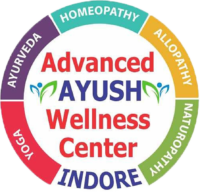Facts & FAQs
About Piles (Hemorrhoids)
Fact No: 1
Piles, also known as hemorrhoids, are swollen and inflamed blood vessels located in the lower rectum or anus.
Fact No: 2
They can be internal (inside the rectum) or external (under the skin around the anus).
Fact No: 3
Piles can result from increased pressure in the anal region due to straining during bowel movements, chronic constipation, or prolonged sitting.
Fact No: 4
Pregnancy, obesity, and a sedentary lifestyle can also contribute to the development of hemorrhoids.
Fact No: 5
Symptoms of piles may include pain, itching, bleeding during bowel movements, and a lump near the anus.
Fact No: 6
A high-fiber diet, drinking plenty of water, and avoiding straining during bowel movements can help prevent piles.
Fact No: 7
Over-the-counter creams, ointments, and suppositories can provide temporary relief from pain and itching.
Fact No: 8
Severe cases of piles may require medical procedures like rubber band ligation, sclerotherapy, or hemorrhoidectomy.
Fact No: 9
Although piles can be uncomfortable, they are not life-threatening, and most cases can be managed with conservative measures.
Frequent Asked Questions
No, piles are not contagious. They are a common medical condition caused by internal or external swelling of blood vessels in the anal region and cannot be transmitted from one person to another.
Yes, you can reduce the risk of developing piles by adopting a healthy lifestyle. Consuming a high-fiber diet, drinking plenty of water, and engaging in regular physical activity can help prevent constipation and straining during bowel movements.
No, not all cases of piles require surgery. In many instances, mild to moderate piles can be managed with lifestyle changes, over-the-counter medications, and home remedies. Surgery is typically reserved for severe cases that do not respond to conservative treatments.
Yes, there are several home remedies that may provide relief from piles symptoms. These include soaking in warm water baths (sitz baths), applying ice packs or cold compresses to the affected area, and using over-the-counter creams or ointments.
Yes, pregnancy can increase the risk of developing piles due to the pressure exerted on the pelvic region by the growing uterus. Hormonal changes during pregnancy can also contribute to the development of hemorrhoids.
You should consult a doctor if you experience persistent bleeding, severe pain, or if your piles do not improve with home remedies and over-the-counter treatments. Additionally, if you notice any changes in bowel habits or have concerns about your symptoms, seek medical advice promptly.
In most cases, piles do not lead to serious complications. However, prolonged untreated cases or severe hemorrhoids can result in anemia (due to chronic bleeding) or thrombosis (blood clots forming in the swollen veins).
Yes, moderate exercise is generally safe and may even help improve bowel movements and reduce the risk of constipation, which can worsen piles. However, avoid strenuous activities that could strain the affected area.
While piles are a common and benign condition, some symptoms, such as rectal bleeding, can be associated with colorectal cancer. If you experience rectal bleeding, especially in individuals over the age of 40, it is essential to get a proper evaluation from a healthcare professional to rule out any serious underlying conditions.
In some cases, mild piles may resolve on their own without medical intervention. However, if symptoms persist or worsen, seeking medical advice is advisable to explore appropriate treatment options and prevent complications.
Discover Relief and Solutions for Piles!
Visit Our Clinic Now for Expert Information and Tips to Manage Hemorrhoids.

